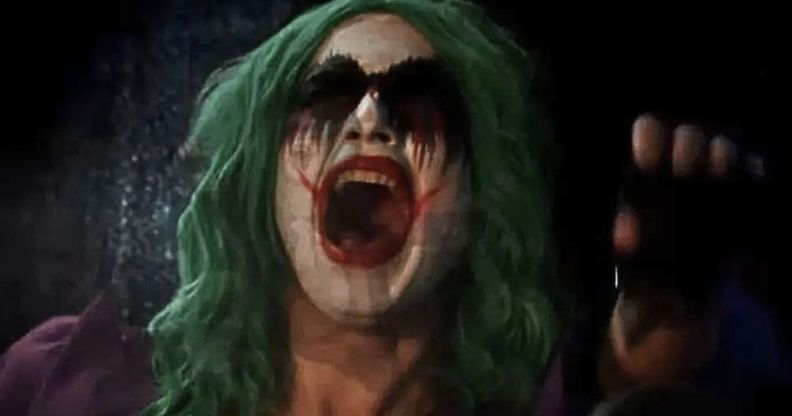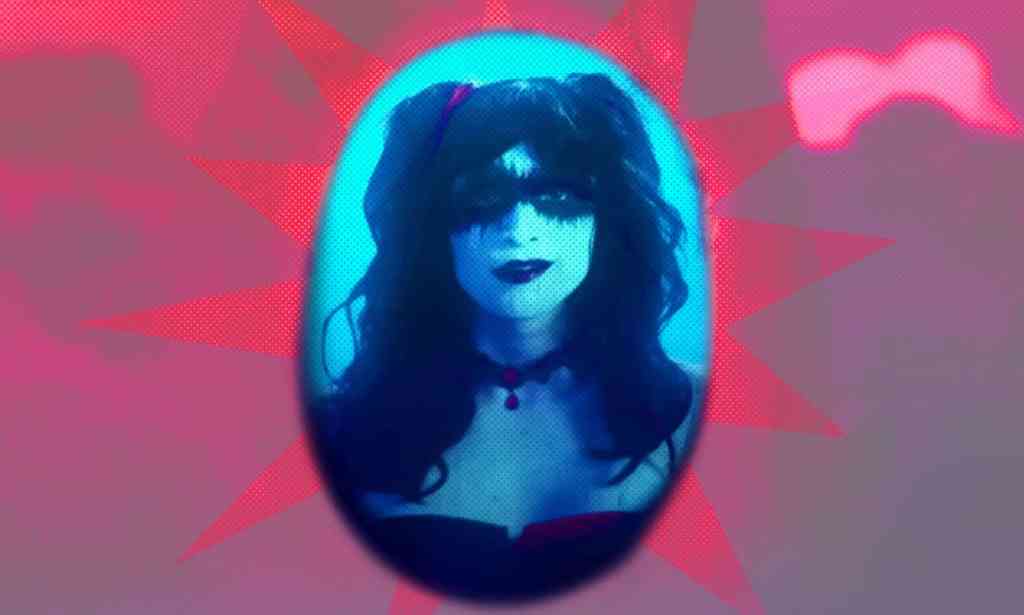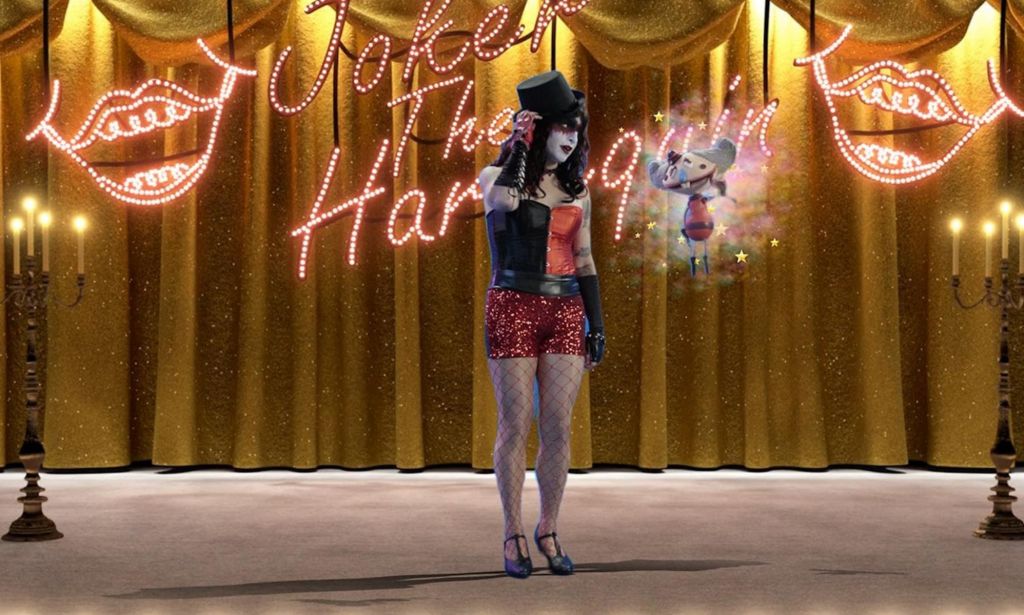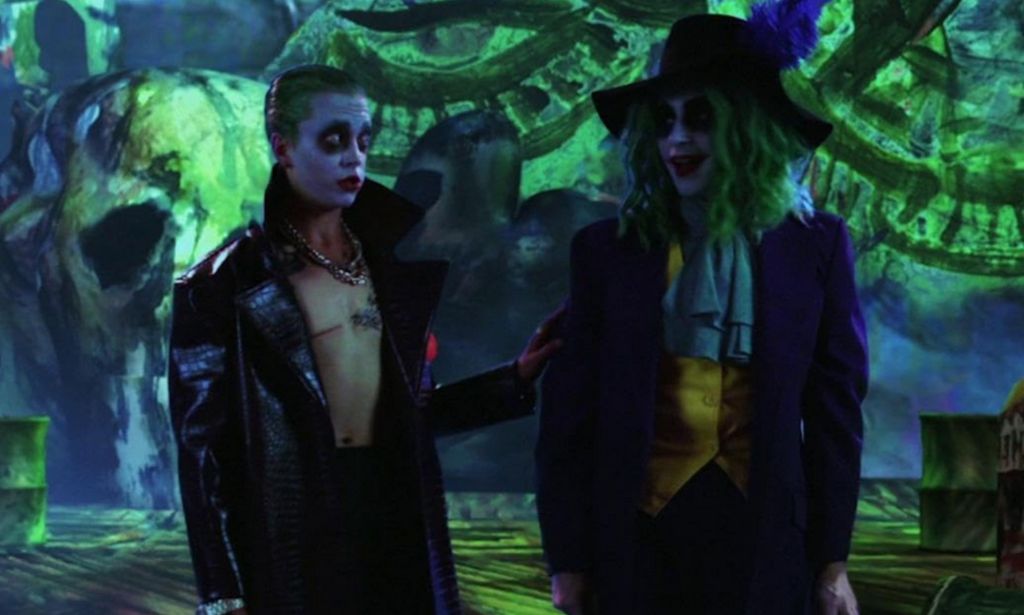The People’s Joker review: ‘A complex trans satire that would make John Waters proud’

The People’s Joker debuted in 2022 before being hit with “rights issues”. (Vera Drew)
It feels disingenuous to begin a review of The People’s Joker without explaining the messy journey of its eventual UK and Ireland cinematic debut.
The film debuted at the Toronto International Film Festival in 2022, but screenings were pulled because of “rights issues” stemming from DC Comics and its parent media company Warner Bros.
Vera Drew, the clown-costume-clad mastermind behind the film, didn’t back down from vowing to show the “illegal comic book movie” and, in a huge win for trash-chic cinema, the independent project finally made its debut at the Outfest Film Festival, in Los Angeles, in July 2023.
It opened in UK at the Prince Charles Cinema, in London’s West End, on Saturday (15 February), complete with a Q&A from Drew, who appeared on the big screen via video call.

The aim for The People’s Joker‘s to be shown internationally is, arguably, inseparable from the film itself, with Drew’s campaign of overcoming legal issues, regarding the use of intellectual properties she has no rights to – of which she’s very much aware – being mandatory reading before you enter the super-sane world she has created.
Set in Gotham City, The People’s Joker follows an aspiring comedian and closeted trans woman, later named Joker the Harlequin (Vera Drew), who journeys to the nether reaches of the fictional city’s seedy underbelly. In this universe, Batman has retired and works with the powers that be to outlaw comedy, save for the government-mandated sketch show, UCB Live, with only men allowed to become comedians.
As a young child, the protagonist, whose dead name is bleeped out – except for one incredibly impactful scene – shows signs of gender dysphoria, to her mother’s horror, and is committed to Arkham Asylum. There, she is prescribed Smylex, a fictional drug which forces users to put on a contorted happy face. Eventually, Joker embraces her gender identity and defies the laws of Gotham City by creating an “anti-comedy” crime group with her friend Oswald Cobblepot.
Let’s just get this out of the way… if you’re a fan of high-budget production and quality cinematography, this film is not for you. The People’s Joker is a small indie project, featuring the work of more than 200 independent artists, the bulk of whom had little to no oversight over what they were contributing. Scenes catapult between formats, from poorly keyed-out green screens to digital animation or stop-motion with DC action figures, in a heartbeat. Real people frequently stand beside 3D humanoid renders and giant LEGO minifigs. While the ugly-chic aesthetic fits, it won’t be everyone’s cup of tea.
Like its analogy for how trans people remember their childhood, the film’s aesthetically fractured sequences whiz by before you even know what you’ve seen. But, if combined and carefully analysed, they speak to a deeper feeling that’s been bubbling under the surface.

Its writing, similarly, is surprisingly deep and genuine for a film where a Venus Flytrap eats a naked 3D render of Lorne Michaels. Screenwriters Bri LeRose and Drew are clearly speaking from their own experiences as trans people, so each grounded scene hits like a lorry. It doesn’t need to babysit its audience with explanations of transness and gender dysphoria and moves beyond to more existentialist questions of identity within society and what it means to be transgender.
It deals with a lot of heavy topics – drug use, abusive relationships and grooming, to list just a few – that would otherwise be difficult for a film as low budget and short as this to fit in, but its endearing cast give genuinely enjoyable performances that see it through. Even supporting characters, such as The Penguin (Nathan Faustyn), are memorable.
Unlike higher-production films about trans people that have come before it, the film’s central commentary on trauma doesn’t simply come from strangers being mean on the street or political pundits saying horrible things on air (in fact, these are played off as jokes), but instead shows the impact that comes when loved ones, who we thought we could trust, take our identity for granted and use it against us.
Some critics have said it suffers because it only speaks to a specific, niche type of trans person and so fails to resonate with those who don’t share the same experience. I would argue the film’s greatest strength is that it only speaks to one trans person: Vera Drew.

The People’s Joker understands that trans people are not a monolith and that trying to be all-encompassing is an impossible task. Trans people can be villains, they can be unfunny, they can be failures, they can be anything because they’re just people and, like people, they are inherently flawed, and that’s OK.
It is, instead, a middle finger to those who believe transness is innately political or moral and not simply a characteristic like having blue eyes or being left-handed. It is completely unsubtle – Joker literally transitions by jumping into a vat of estrogen – yet it manages to handle its themes in such an eloquently profound way that its frankly unhinged presentation and irreverence fade into the background.
It is also unabashedly hilarious, serving up joke after joke in mere seconds that had the audience, myself included, in tears. Its reliance on referential humour can work against it at times, however. Some references are so specific that they feel like they were made only for Drew to understand. The filmmaker’s intent with certain scenes can also get muddled – members of the audience laughed at points that I and others thought were serious, and vice-versa.
The film suffers from pacing issues at times, too. Packing so much into 92 minutes is no easy feat, and certain themes, such as Joker’s growing alcoholism, are seemingly dropped with no significant arc.
Certain characters, such as USB Live host Ra’s al Ghul, have arcs that feel messy and unpolished. Nevertheless, the film is an incredibly enjoyable romp that would make trash-chic cinema pioneers such as John Waters proud.
The People’s Joker is, essentially, an enjoyably deep 92-minute fever dream that’s like if Contrapoints did a version of Nostalgia Critic’s The Wall, and is best kept for people who understand that reference.
For upcoming screenings and tickets for The People’s Joker, click here.
Share your thoughts! Let us know in the comments below, and remember to keep the conversation respectful.
How did this story make you feel?

